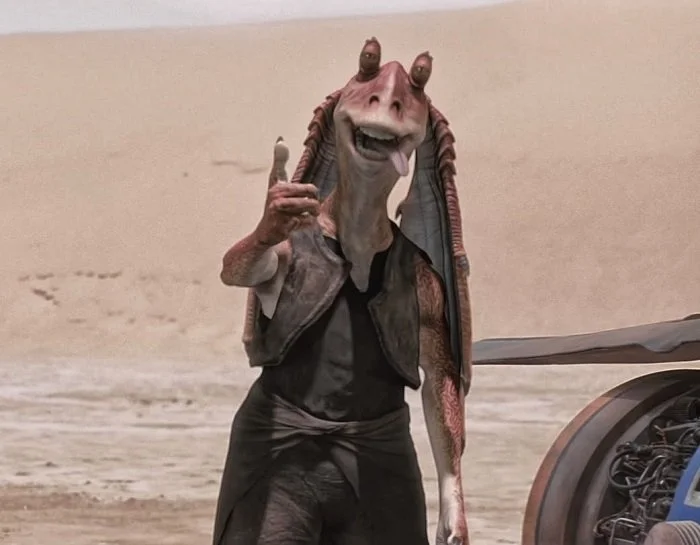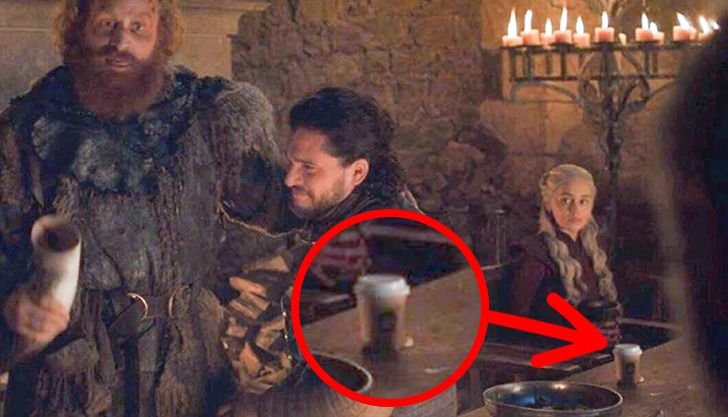When Sequels Suck: The Star Wars Sequel Trilogy
“These are not the Star Wars you are searching for.” Collage from TheGatorsEye.com
By Nick M. W.
When Disney acquired Lucasfilm back in 2012 from the godfather himself, I believed the Star Wars franchise was in good hands. Disney had the money and resources to pour into future Star Wars projects, which would attract the best talent in the world. I figured there would be a line of filmmakers as long as a Star Destroyer chomping at the bit to get in on their childhood fantasies and make Star Wars content. On top of that, Disney had plans to launch its own streaming service, with rumors that they would create Marvel and Star Wars series to our TV screens. There was a lot for fans to be optimistic about.
And then ...
Look, I wanted to love the Star Wars Sequel Trilogy because I love Star Wars, from the movies to the shows to the books and the video games. I’m a simple fan trying to make my way through the galaxy, and all I want from this franchise is to be entertained. That’s it. Perhaps you can relate. If so, I imagine that we share the same sentiment about the Sequel Trilogy.
I didn’t like it, and you probably didn’t like it all that much either.
All the Star Wars fans I know didn’t like it either. Every single one. They tolerated The Force Awakens, but hated The Last Jedi. By the time The Rise of Skywalker was released, they were indifferent. “Who cares anymore,” they shouted from the Core Worlds to the Outer Rim. The disappointment was tremendous.
Angry tears from a half-billion nerds raged across Reddit and Twitter like a hundred-year flood. Unfortunately, toxic scum rose to the surface, and some fans descended into the dark side, spewing ignorance and hate because of their wounded hearts. These are just movies we’re talking about, so there was never a need to threaten someone’s life over the fact that these movies sucked. I do understand that level of heartbreak, though. We wanted them to be awesome.
Like a lot of fans, I can let my feelings get the best of me when it comes to matters of the heart, like with Star Wars. Nostalgia is powerful. We attach ourselves to the past and take deep hits of sentimentality that bring us fleeting joy. It’s quite lovely in the moment when it goes well, but there are times when we try to revisit the past by experiencing a new version of that old “thing,” and we get an aberration that we despise.
I’ve done this before with Star Wars, 23 years ago, when I tried to rationalize with myself that The Phantom Menace was a better movie than it was. I wanted to love it they way I’d loved The Empire Strikes Back when I first saw it. I wanted to proclaim that it was the best Star Wars movie I’d ever seen and believe the words I spoke.
Damn.
That proved to be an impossible task. I heard Sisyphus thought about giving Phantom Menace a shot, but figured he’d have more fun pushing that boulder back up the hill.
I could forgive the incomprehensible trade embargo blah-blah-blah that thrilled me to the brink of unconsciousness in The Phantom Menace, but who could forgive anyone involved with bringing Jar-Jar Binks to life?
“Sick burn, man!” Jar-Jar Binks, Glamis, CA,1999. Image: Lucasfilm ltd.
For all its flaws, I still have some nostalgia for this movie — the hype surrounding its release was incredible, and the excitement leading right up to the opening crawl was something to experience . However, I can’t deny that The Phantom Menace sucks. It’s a collection of a few cool moments packaged around what was supposed to be the origin story of the baddest of baddies in the Star Wars universe, not the diary of a wimpy kid.
With part two of the Prequel Trilogy, somehow, someway, George Lucas managed to make a Star Wars movie worse than The Phantom Menace. I don’t remember much hype for this disaster, which did have a couple of cool moments sprinkled into the cringe mix. Fewer people were looking forward to this movie with as much fervor as they did with Episode One, but a lot of fans were duped again with the Disney/Lucasfilm Sequel Trilogy.
A decade had passed since the decent Revenge of the Sith closed out the fate of Anakin Skywalker, the Jedi, and the Galactic Republic. Time heals all wounds, and so does good storytelling in the Expanded Universe. The Clone Wars animated series restored some good faith with long-time Star Wars fans who felt burned by the poor execution of the prequels. and some of them were still leery about the Disney takeover of Lucasfilm. On paper, the talent that was signed on to bring the Sequel Trilogy to life seemed more than capable of delivering an entertaining and emotionally satisfying final trilogy to close out the Skywalker Saga.
Although riddled with enough holes to strain pasta, The Force Awakens was an entertaining callback to A New Hope, and it was a serviceable point of entry to attract new fans. The plot holes could be defended to some degree by simply pointing towards the next two movies in the trilogy and saying, “We’ll get our answers there.” That’s how it should have gone because that’s how it goes with a series. The story continues, proceeding in a way that sets up the conclusion and delivers on it, not give it the Benioff and Weiss treatment.
Tell me you don’t care anymore without saying it. Game of Thrones, 2019.
With The Last Jedi, Rian Johnson made a Star Wars movie that told a story he wanted to tell, which would have been fine if it wasn’t the second act of a trilogy, and part of the third volume in a saga. This decision only created more issues with the overall story; the plot holes from the first entry were stretched, not patched, or at even filled in a bit and primed to be fixed by the conclusion. Fans had more questions about the story after this movie than they had going into it. Johnson completely ignored some of the potential story lines setup in The Force Awakens, like:
· How did the First Order rise to power?
· Where did Snoke come from?
· Who are the Knights of Ren?
· Who are Rey’s parents?
· When did Leia learn how to use the Force?
· Why did Ben Solo fall to the dark side?
· Why did Luke Skywalker bail on his sister and the Resistance?
These are significant ideas and questions that were introduced in The Force Awakens, and suddenly, they didn’t matter in The Last Jedi. That’s a cruel trick to play on the audience.
As it turns out, those were questions that J.J. Abrams appeared to care about, enough to answer when he returned to direct the final act, The Rise of Skywalker. Ideally, the threads that he left dangling at the end of The Force Awakens would have been followed and developed in the second act, so they could be tied up by the third act. That’s not what happened. These movies looked amazing—the return to practical effects actually created a more realistic fake experience than all the CGI dumped into the prequels—and they were more entertaining than the Prequel Trilogy. It was all for naught, though, leading to an unsatisfying conclusion; another collection of cool on screen moments that were lost in the mess of an utterly disappointing end to the Skywalker Saga.
When I think of the failures of the Sequel Trilogy, I return to the same question:
Why couldn’t Disney/Lucasfilm pull off a cohesive narrative for this Star Wars trilogy?
J.J. Abrams admitted that the Sequel Trilogy would have told a better story if they (he and Lucasfilm) had planned out the narrative from beginning to end. Uh, yeah, it probably would have helped to have certain road signs in place throughout the story to guide the other directors towards the same narrative conclusion and to keep everyone involved in the project on the same page. Two things ruined the Disney Sequel Trilogy:
1. Rian Johnson (good director and storyteller who told the wrong Star Wars story at the wrong time),
and
2. The scattered narrative of the overall trilogy. The former issue may not have been an issue if the latter one had been attended to from the jump. Have a plan; outline the story from the beginning to the end, and make necessary changes to the characters or plot when they emerge as the story develops.
The original Star Wars trilogy was not created in this way because of a few different circumstances that existed at that time. The people involved with making A New Hope didn’t think it was going to be the phenomenon that it was. George Lucas was just trying to make some scratch to finance his next project. He had ideas of where he would like his Star Wars story to go, and he let other directors take it there. They were able to create magic back then. 40 years later, Lucasfilm had no need to operate in this rudderless manner, but they did at the expense of good storytelling. The sequels looked nice, and I enjoyed the cast, but most of the main characters, like Finn, Kylo Ren, Poe, and Rose, were short-changed better onscreen development, and others, like Snoke and Captain Phasma, were completely thrown away, like the severed halves of Darth Maul.
Perhaps those characters were never going to be properly developed in the movies. Star Wars is a business empire. Lucasfilm found an interesting way to bring back Darth Maul in The Clone Wars animated series, continuing on into the Rebels series, a cameo in Solo, and features in several comic books and novels, presumably making more money off Darth Maul in the Expanded Universe. Recent comics and novels have done this same thing for characters in the sequels, and Disney+ series, like The Mandalorian, seem to be setting the stage for the rise of the First Order, so it appears that Lucasfilm is simply following their method of unfolding a galaxy full of stories throughout the various mediums it operates.
If this is the case, then it was unfortunate that the Sequel Trilogy simply existed to help sell Star Wars in other mediums. I don’t figure that this is what really happened. You don’t need gimmicks to sell Star Wars. You just need to be entertaining. The brand will sell itself.
Lucasfilm had the opportunity to make something as beloved as their professional adversaries and colleagues across the lot at Marvel managed to accomplish with their Avengers saga. Ten years of calculation led to Endgame, and Marvel nailed the landing. The talent was there for the Star Wars Sequel Trilogy to be more than a massive box office success. It could have also captured the imaginations of a new generation of fans and thrilled us long-timers, but the collective genius at Lucasfilm couldn’t produce a story that was anything more than a sore spot for Star Wars fans.
“Don’t mind me.” Grogu sipping, The Mandalorian, 2019. Image: Lucasfilm ltd.





